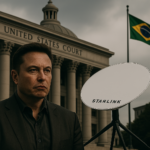The debate over the legalization of gambling has returned to the center of Brazilian politics. On the one hand, there are those who see the measure as legitimate source of revenue and formalization of an already existing sector. On the other hand, critics warn of social risks, addiction and the weakening of the population's mental health.
The division cuts across parties, ministries and ideological currents. But behind the moral debate, there is a central question: What is the true role of the State?
The moralistic state vs. the tax-collecting state
The same government that bans menthol cigarettes, regulates soft drink labels and censors advertising for children, is now considering allowing bets in casinos, online games and bingo — as long as it can be taxed.
The inconsistency is not accidental. It is a symptom of a State that does not protect individuals, but its own coffers. Where there is potential for revenue, the discourse changes. The vice, previously condemnable, becomes tolerable — as long as it generates revenue.
Mises and freedom of choice
For the Austrian School, individual freedom includes the freedom to make mistakes. The State should not be the moral guardian of the citizen, but the guarantor of contracts and the legal order. Ludwig von Mises argued that state coercion in the name of “virtue” tends to be selective and contradictory.
Banning games because they are “harmful” while legalizing sports betting and state lotteries is pure moral monopoly, disguised as social prudence.
The choice that remains for Brazil
Legalizing gambling can indeed represent progress — as long as it is accompanied by clear rules, respect for entrepreneurs and freedom of choice for consumers. The problem is not the casino: it is the State that sees it as an opportunity for power and control, not as a space for freedom and private risk.
Conclusion
The debate over gambling in Brazil reveals much more about the State than about the citizen. Behind the discussion between revenue collection and addiction lies an uncomfortable truth: The government doesn't want to protect you — it wants to tax your choices.


